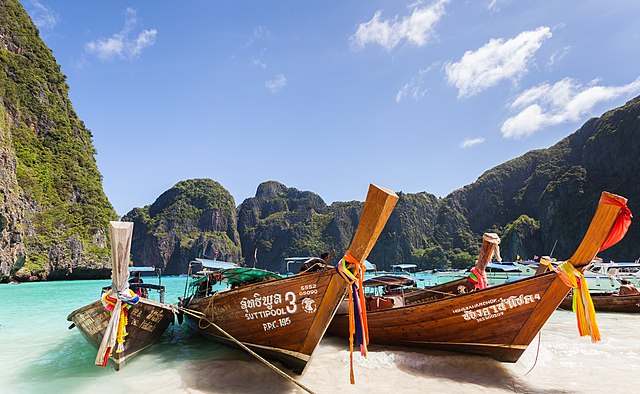Phi Phi Islands (Phi Phi)
The Phi Phi Islands (Thai: หมู่เกาะพีพี, (pronounced ‘Pee Pee’) are an island group in Thailand between the large island of Phuket and the Straits of Malacca coast of Thailand. The islands are administratively part of Krabi Province. Ko Phi Phi Don (Thai: เกาะพีพีดอน; RTGS: ko phiphi don) (ko Thai: เกาะ 'island') is the largest and most populated island of the group, although the beaches of the second largest island, Ko Phi Phi Le (Thai: เกาะพีพีเล; RTGS: ko phiphi le) are visited by many people as well. The rest of the islands in the group, including Bida Nok, Bida Nai, and Bamboo Island (Ko Mai Phai), are not much more than large limestone rocks jutting out of the sea. The islands are reachable by speedboats or long-tail boats most often from Krabi town or from piers in Phuket Province.
Phi Phi Don was initially populated by Muslim fishermen during the late-1940s, and later became a coconut plantation. The resident Thai population of Phi Phi Don remains more than 80 percent Muslim. The current population however—if counting transient workers—is more Buddhist than Muslim. The resident population is between 2,000 and 3,000 people (2013).The islands came to worldwide prominence when Ko Phi Phi Le was used as a location for the 2000 British-American film The Beach. This attracted criticism, with claims that the film company had damaged the island's environment - the producers supposedly bulldozed beach areas and planted palm trees to make it better resemble descriptions in the book, an accusation the filmmakers contest. An increase in tourism was attributed to the film's release, which resulted in increased environmental degradation. Phi Phi Le is home to the "Viking Cave", where there is a thriving industry harvesting edible bird's nests.
Ko Phi Phi was devastated by the Indian Ocean tsunami of December 2004, when nearly all of the island's infrastructure was destroyed.
- 1 History
- 2 Geography
- 3 Administration
- 4 Climate
- 5 Transportation and communication
- 6 Tourism
- 7 Medical
- 8 2004 tsunami
- 9 Post-tsunami reconstruction
- 10 Impact of mass tourism
- 11 Gallery
- 12 See also
- 13 References
- 14 External links
Links
Images Gallery
-
-

-

-

-
-
 Phi Phi Islands
Phi Phi Islands
-
-
-
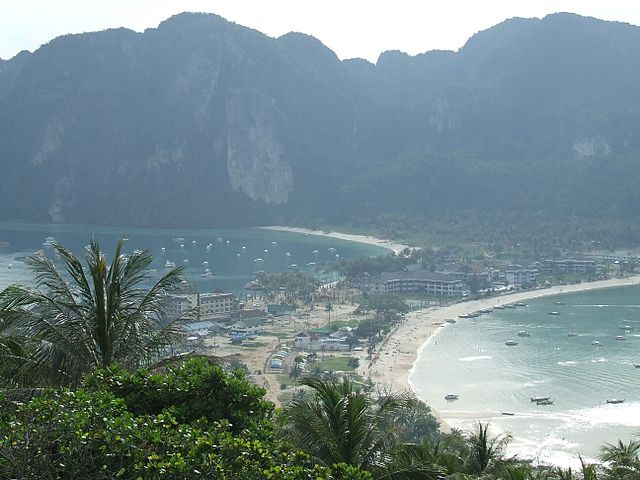
-

-
-
 Gypsy boat, Ko Phi Phi
Gypsy boat, Ko Phi Phi
-

-
-

-
-
Sunset, Ko Phi Phi
-
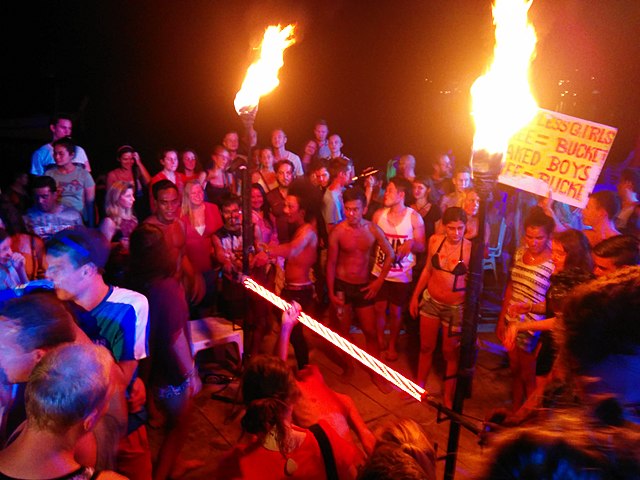 Phi Phi party
Phi Phi party
-
 Ko Phi Phi Don, March 2005 in the aftermath of the tsunami.
Ko Phi Phi Don, March 2005 in the aftermath of the tsunami.
-
 Bryde's whale swims off the islands
Bryde's whale swims off the islands
-

-

-
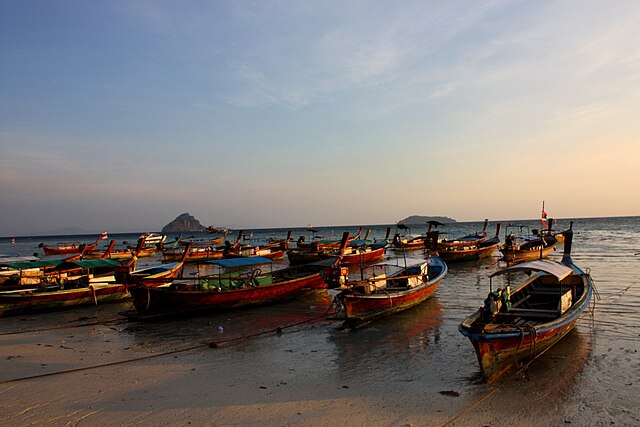
-

-

-

-
-

-

-
-

-
-
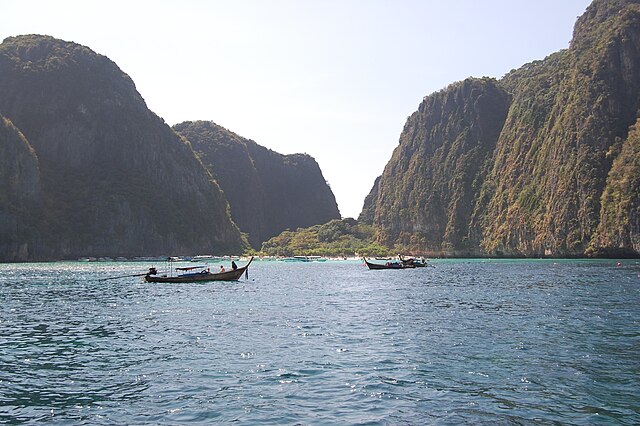
-
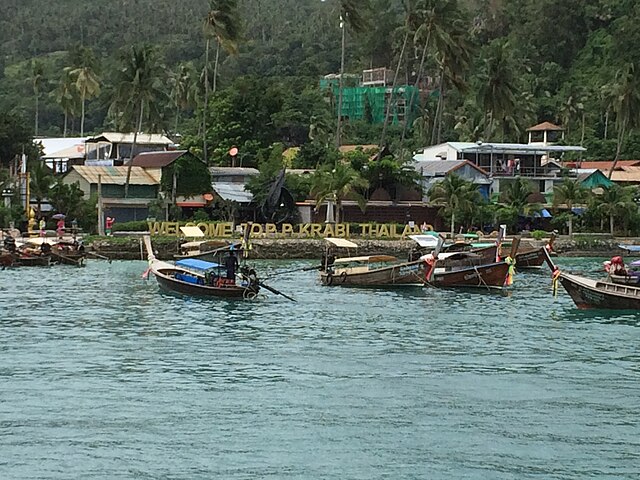
-

-

-

-

-

-

-

-
-

-
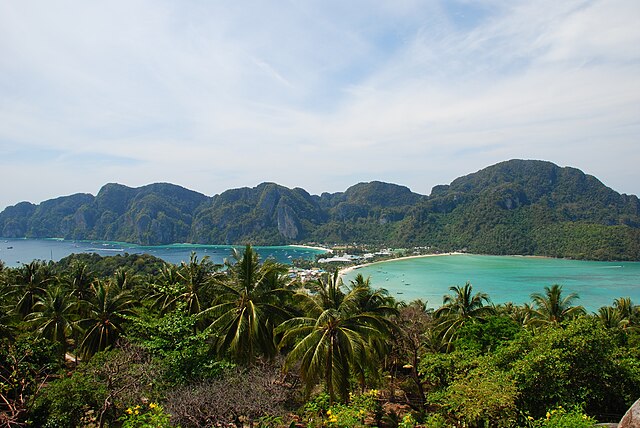
-
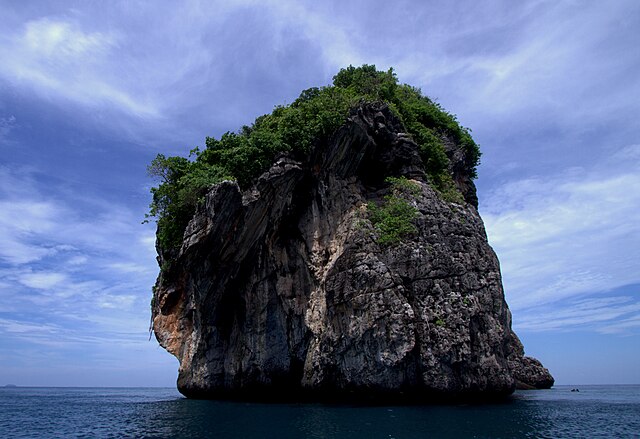
-
-

Comments
Share your experience with others and write the first comment about the location
